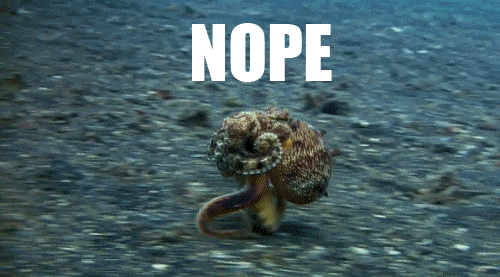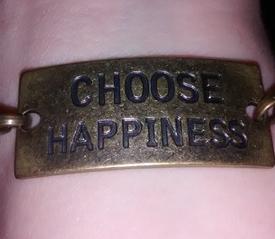Food addiction

Hardenton
Posts: 136 Member
The Law of Addiction states that "administration of a drug to an addict will cause reestablishment of chemical dependence upon the addictive substance."
So how do we justify having cheat foods, cheat meals or even cheat days?
Is it good strategy for a person trying to quit smoking to have a "cheat cigarette" every now and then, indefinitely? Will they ever quit? Will they ever overcome the power of nicotine? How can we do the same with junk food and expect to overcome the power of unhealthy food craving?
So how do we justify having cheat foods, cheat meals or even cheat days?
Is it good strategy for a person trying to quit smoking to have a "cheat cigarette" every now and then, indefinitely? Will they ever quit? Will they ever overcome the power of nicotine? How can we do the same with junk food and expect to overcome the power of unhealthy food craving?
0
Replies
-

0 -
We justify it by food not being an addictive substance.
0 -
Junk food is addictive.. give a kid healthy food they will eat until you're full and stop. Give them junk food they'll eat until their stomach hurts0
-

0 -
Junk food is addictive.. give a kid healthy food they will eat until you're full and stop. Give them junk food they'll eat until their stomach hurts
It's not addictive in the way that drugs are addictive...not the same. Kids choose the junk food because it tastes good, not due to addiction.
0 -
The Law of Addiction states that "administration of a drug to an addict will cause reestablishment of chemical dependence upon the addictive substance."
So how do we justify having cheat foods, cheat meals or even cheat days?
Is it good strategy for a person trying to quit smoking to have a "cheat cigarette" every now and then, indefinitely? Will they ever quit? Will they ever overcome the power of nicotine? How can we do the same with junk food and expect to overcome the power of unhealthy food craving?
For somebody with a severe food addiction my psychologist recommends not having a cheat meal ever, listing all the foods that trigger binge eating, and avoid them 100%.
This was a food addiction phd psychologist, so you aren't totally off base with this post. However I think that is really severe cases where they fail at moderation every time and food addiction is ruining their life.
I have a tendency towards binge eating and I have cheat days, they prevent me from going overboard. I think it is healthy for most people on here to have a treat or not look at most food as "bad"0 -
Junk food is addictive.. give a kid healthy food they will eat until you're full and stop. Give them junk food they'll eat until their stomach hurts
It's not addictive in the way that drugs are addictive...not the same. Kids choose the junk food because it tastes good, not due to addiction.
Junk food (unhealthy fat, sugar, salt) is addictive. By "tastes good" you mean it floods the brain with dopamine in the same way drugs do.
0 -
Junk food is addictive.. give a kid healthy food they will eat until you're full and stop. Give them junk food they'll eat until their stomach hurts
It's not addictive in the way that drugs are addictive...not the same. Kids choose the junk food because it tastes good, not due to addiction.
Junk food (unhealthy fat, sugar, salt) is addictive. By "tastes good" you mean it floods the brain with dopamine in the same way drugs do.
I agree with you, It actually can be an addiction the same as heroin or tobacco. I am not sure why people fight this when it has been proven time and time again.0 -
ANY food can be addictive, not just junk food. An addict will look for anything to make them feel better or avoid feeling emotions he/she is afraid of. An addict abuses a substance or habit (shopping, sex, gambling) as a coping tool. Albeit, a destructive coping tool.
The reality is that these "things" don't make the addict feel BETTER, it just makes them feel DIFFERENT. It's a temporary distraction until the next dose.
Being addicted to food is super hard in recovery because you have to eat to live. Therapy is crucial to help figure out why food was abused in the first place and where the emptiness in our hearts came from. Addicts are hurting emotionally and don't know how to deal with their pain without distractions.
Some recovery programs teach the food addict that food is medicine and that it has be a proper dose each day to be healthy. It needs to be measured and counted.
Having a "cheat" day can be dangerous for some people because it may cause a relapse. Finding a balance in life is the main goal. If there's a day where you want to eat a little heavier on the calories, doing a hard workout will keep you in check.
I'm responding to your post as someone who is a food addict in recovery. And yes, I'm a dietitian with a Masters degree in nutrition. I am a clear example of knowing what to eat and actually doing it are two very different things.
Food addicts can't make it to recovery alone, they needs lots of support just like an alcoholic.
Best of luck and wishing you success. It's a hard road but worth it at the end
Your friendly dietitian0 -
The best way to kick the addiction is cold turkey. I like mine with mashed potatoes, skip the gravy and smother it with creamed corn, then a slice of pecan pie for dessert.
Food is not addictive, but over-indulgence is, as it stimulates serotonin production. That's the habit you have to break, because you can't live without food. That being the case, any comparison to real addiction is foolish, just learn to control yourself.
Rigger0 -
Junk food is addictive.. give a kid healthy food they will eat until you're full and stop. Give them junk food they'll eat until their stomach hurts
I guess my brain doesn't differentiate potato chips and garden peas then, because I used to eat giant huge bags of garden peas until my stomach hurt.0 -
HotPotato22 wrote: »Junk food is addictive.. give a kid healthy food they will eat until you're full and stop. Give them junk food they'll eat until their stomach hurts
It's not addictive in the way that drugs are addictive...not the same. Kids choose the junk food because it tastes good, not due to addiction.
Junk food (unhealthy fat, sugar, salt) is addictive. By "tastes good" you mean it floods the brain with dopamine in the same way drugs do.
I agree with you, It actually can be an addiction the same as heroin or tobacco. I am not sure why people fight this when it has been proven time and time again.
uhm. Proven when and where please link the research articles.0 -
http://www.medical-hypotheses.com/article/S0306-9877(09)00484-8/abstract?cc=y
http://journals.lww.com/coclinicalnutrition/Abstract/2010/07000/Neurobiology_of_food_addiction.3.aspx
These are just a few of dozens, these are medical journals, not propaganda websites or fear mongering tactics. It is science.0 -
In for peer reviewed studies....0
-
This content has been removed.
-
Junk food is addictive.. give a kid healthy food they will eat until you're full and stop. Give them junk food they'll eat until their stomach hurts
It's not addictive in the way that drugs are addictive...not the same. Kids choose the junk food because it tastes good, not due to addiction.
Junk food (unhealthy fat, sugar, salt) is addictive. By "tastes good" you mean it floods the brain with dopamine in the same way drugs do.
Ya, I disagree. I work in a men's drug treatment facility. I see TRUE addicts day in and day out. It's not the same. This is coming from someone who struggled with overeating my whole life. I used to fall back on the excuse that food was addictive. In reality, it wasn't. I just didn't care about my health and didn't want to lose weight bad enough. I found comfort in food, but it wasn't addiction.
0 -
Junk food is addictive.. give a kid healthy food they will eat until you're full and stop. Give them junk food they'll eat until their stomach hurts
It's not addictive in the way that drugs are addictive...not the same. Kids choose the junk food because it tastes good, not due to addiction.
And/or because it's easier. How many kids are trusted with knives and know how to cool their own proper meals? Much easier to grab convenient food, which can also be fruit and veggies. I used to eat a looooooooooooooooooot of fruit. I still do now, but instead of eating like 3-4 mangoes in a day as a single serving of fruit when eating like 6+ servings, I eat what I desire within my calories haha.0 -
Gambling is the only behavioral addiction that at this point is recognized in the DSM-V or ICD-9 or 10. Many psychologists, myself included, don't agree with gambling being included in the addiction setting.
Can you be a compulsive eater? Certainly. You can be a compulsive hand washer as well, but that doesn't make hand washing addictive. Food fires the reward pathways of the brain. It is supposed to, eating is required for survival.0 -
http://www.tandfonline.com/doi/abs/10.1080/02791072.2012.662092#.VPU7oV2N1b1
http://onlinelibrary.wiley.com/doi/10.1038/oby.2003.68/full
I too have a degree in nutrition and food addiction.
I smoked cigarettes for 15 years and quit cold turkey no problem but not eating junk food was the hardest thing I've ever done. I won't get into details, but I have done very addictive drugs for years and gave that up without a single withdrawl. If you say comparing food addiction to a "real addiction" is silly it is because you don't struggle from it, not because it isn't real.
0 -
I have quit smoking too in the past no problem. I also tried the "moderation" strategy when it comes to junk food and this never works. Unless you don't mind gaining back a few pounds, having water retention, digestive problems, feeling like crap and hating yourself for a few days every month, then go ahead and have your "cheat day"0
-
I have quit smoking too in the past no problem. I also tried the "moderation" strategy when it comes to junk food and this never works. Unless you don't mind gaining back a few pounds, having water retention, digestive problems, feeling like crap and hating yourself for a few days every month, then go ahead and have your "cheat day"
I'm not against cheat days,I think telling most people to avoid them is extreme. If you can handle a cheat day I think you should. My cheat days used to lead to 4 day binges of around 6,000 calories a day, but I was also starving myself on good days and it took years to get it right, now I can handle a cheat day for the most part.
I do agree that food can be an addiction but I don't think people should be scolded for cheat days. I think it keeps a lot of people sane and on track.
0 -
Just reading the few links that worked (abstracts only), none of them are saying "we have proven that food is the same as drugs and can cause the same type of addictive behaviour/experience." I mean, the first one says that they are comparing similarities and differences between food consumption and addiction, and the second link doesn't seem to be making any concrete conclusions based on the conclusion:Do we have enough new evidence from neurofunctional and other studies to begin to suspect that human obesity is predominantly an addictive disorder characterized by compulsive eating? We cannot say for sure, as yet. Some critical steps needed to further our understanding include establishing [as preliminary data seem to suggest (31)] whether dopamine is released in response to food ingestion in humans (as it is in animals)0
-
Unless you don't mind gaining back a few pounds, having water retention, digestive problems, feeling like crap and hating yourself for a few days every month, then go ahead and have your "cheat day"
I have cheat meals about once a week, and I don't have any of those problems, especially the self loathing you mentioned. Maybe you should reexamine your relationship with food bro, it doesn't sound healthy.
Rigger
0 -
"Addiction is a chronically relapsing disorder characterized by compulsion to seek and take the drug; loss of control in limiting intake of the drug; and onset of a negative emotional state (e.g., anxiety, irritability) when access to the drug is prevented (i.e., dependence) (5). In addicted drug users, craving is elicited by exposure to drug-related cues, which may trigger a relapse. A similar behavior characterizes the craving for food in overeaters (6). It is known that eating disorders tend to cluster with drug and alcohol abuse in individuals and families (6), and common neural circuits are thought to underlie food and drug rewards, including opioid (7, 8, 9), serotoninergic (8, 9), and dopaminergic pathways (8, 9, 10)."0
-
rhetorical0
-
Just reading the few links that worked (abstracts only), none of them are saying "we have proven that food is the same as drugs and can cause the same type of addictive behaviour/experience." I mean, the first one says that they are comparing similarities and differences between food consumption and addiction, and the second link doesn't seem to be making any concrete conclusions based on the conclusion:Do we have enough new evidence from neurofunctional and other studies to begin to suspect that human obesity is predominantly an addictive disorder characterized by compulsive eating? We cannot say for sure, as yet. Some critical steps needed to further our understanding include establishing [as preliminary data seem to suggest (31)] whether dopamine is released in response to food ingestion in humans (as it is in animals)
They are doing research on the subject because they think food addiction is very real and are spending money and resources to learn more about it. There are also psychologists that make a living off of people with food addiction and 12 step programs.
Maybe you don't think it is an addiction. I don't think tobacco is addicting but I don't shame others who can't seem to quit.
0 -
HotPotato22 wrote: »http://www.tandfonline.com/doi/abs/10.1080/02791072.2012.662092#.VPU7oV2N1b1
http://onlinelibrary.wiley.com/doi/10.1038/oby.2003.68/full
I too have a degree in nutrition and food addiction.
I smoked cigarettes for 15 years and quit cold turkey no problem but not eating junk food was the hardest thing I've ever done. I won't get into details, but I have done very addictive drugs for years and gave that up without a single withdrawl. If you say comparing food addiction to a "real addiction" is silly it is because you don't struggle from it, not because it isn't real.
First off, how is linking abstracts that themselves discuss the theory of food as and addiction as "proven time and time again?"
Here's an article arguing that it's at best "eating addiction" focusing on the behavior rather than the food itself.
http://www.sciencedirect.com/science/article/pii/S0149763414002140
Secondly... you have a degree in food addiction? Seems made up.
Ok, reply away with inanity, I'm going to bed now. Because I am addicted to it. I feel compelled to do it every night and I have withdrawals when I don't do it.
0 -
navyrigger46 wrote: »
I have cheat meals about once a week, and I don't have any of those problems, especially the self loathing you mentioned. Maybe you should reexamine your relationship with food bro, it doesn't sound healthy.
Rigger
I've had disordered eating since my teen years, so my relationship with food is definitely not healthy. I think cheat meals are fine, as long as they don't lead to cheat days and you only eat as much as you plan on eating. The problem with cheat meals is once you start, it's hard to stop. Once the reward pathways are activated and the dopamine receptors are firing, your brain is gonna want more and more.
0 -
This content has been removed.
-
jenglish712 wrote: »HotPotato22 wrote: »http://www.tandfonline.com/doi/abs/10.1080/02791072.2012.662092#.VPU7oV2N1b1
http://onlinelibrary.wiley.com/doi/10.1038/oby.2003.68/full
I too have a degree in nutrition and food addiction.
I smoked cigarettes for 15 years and quit cold turkey no problem but not eating junk food was the hardest thing I've ever done. I won't get into details, but I have done very addictive drugs for years and gave that up without a single withdrawl. If you say comparing food addiction to a "real addiction" is silly it is because you don't struggle from it, not because it isn't real.
First off, how is linking abstracts that themselves discuss the theory of food as and addiction as "proven time and time again?"
Here's an article arguing that it's at best "eating addiction" focusing on the behavior rather than the food itself.
http://www.sciencedirect.com/science/article/pii/S0149763414002140
Secondly... you have a degree in food addiction? Seems made up.
Ok, reply away with inanity, I'm going to bed now. Because I am addicted to it. I feel compelled to do it every night and I have withdrawals when I don't do it.
Yes you should make fun of people who severely struggle with food problems.0
This discussion has been closed.
Categories
- All Categories
- 1.4M Health, Wellness and Goals
- 398.2K Introduce Yourself
- 44.7K Getting Started
- 261K Health and Weight Loss
- 176.4K Food and Nutrition
- 47.7K Recipes
- 233K Fitness and Exercise
- 462 Sleep, Mindfulness and Overall Wellness
- 6.5K Goal: Maintaining Weight
- 8.7K Goal: Gaining Weight and Body Building
- 153.5K Motivation and Support
- 8.4K Challenges
- 1.4K Debate Club
- 96.5K Chit-Chat
- 2.6K Fun and Games
- 4.8K MyFitnessPal Information
- 12 News and Announcements
- 21 MyFitnessPal Academy
- 1.5K Feature Suggestions and Ideas
- 3.2K MyFitnessPal Tech Support Questions






